Name: Ganga
Address: Varanasi, Uttar Pradesh
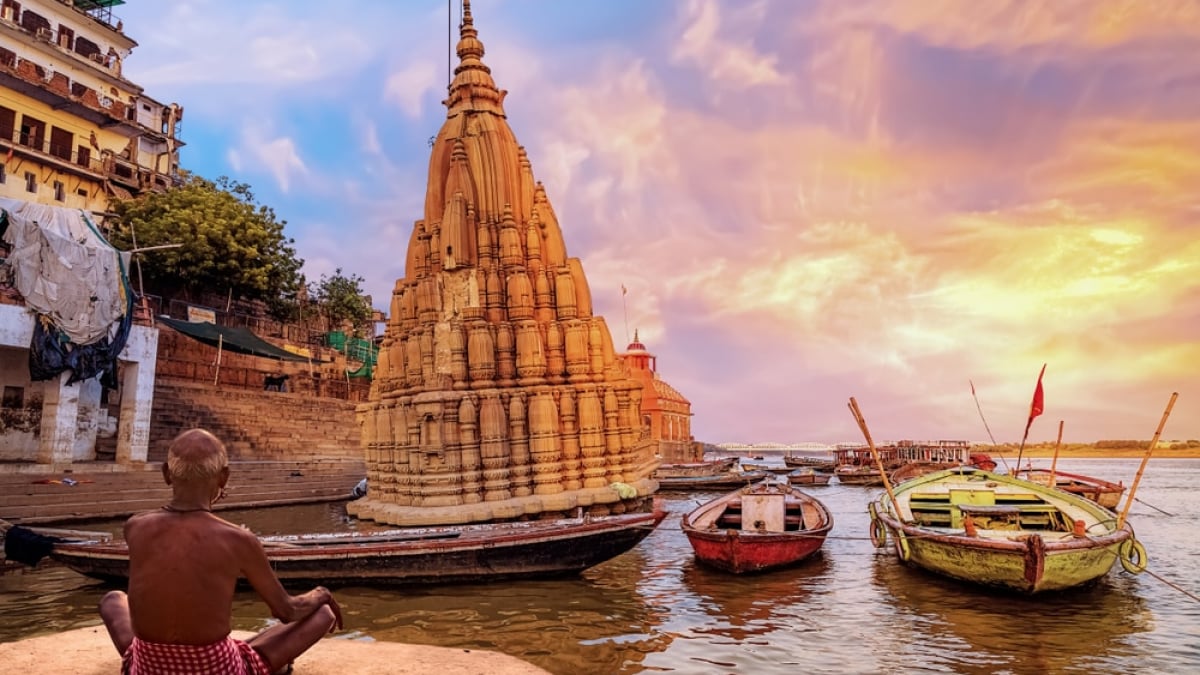
A chaotic city where life and death intertwine: 4 must-visit tourist spots in Varanasi, India
Varanasi, a chaotic city where life and death intertwine. This city is located along the Ganges River in Uttar Pradesh, northern India. Varanasi attracts many visitors seeking the sacred waters of the Ganges and is considered a holy site where every Hindu wishes to make a pilgrimage at least once in their lifetime. However, it is also a popular tourist destination among backpackers. This time, let’s introduce some of Varanasi’s must-visit spots that captivate not only Hindus but people from all walks of life.
table of contents
[x] close
A chaotic city where life and death intertwine: 4 must-visit tourist spots in Varanasi, India
1. The Ganges River
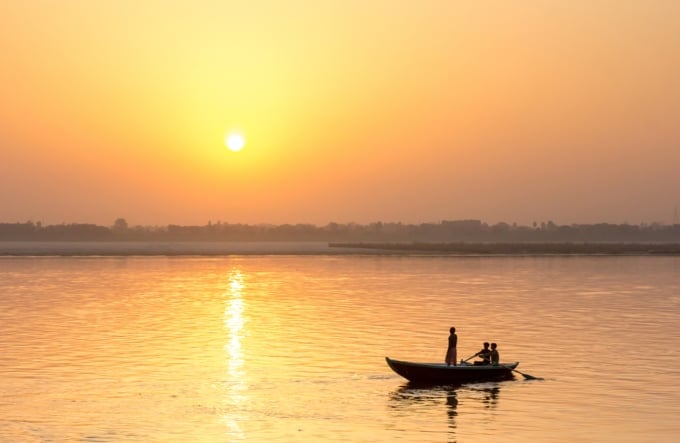
Varanasi, India, is a city with a history spanning over 3,000 years. That history would be impossible without the Ganges River. Even today, the Ganges is not only crucial to Varanasi but also to all of India—it’s easy to imagine its significance.
Tourists from all over the world visit the Ganges, but for the locals, it is an essential part of daily life. People bathe, wash clothes, and even take baths in the river, alongside cows that also wade in its waters. However, in the very same river, bodies float, and cremations take place—a place where life and death coexist. Drawn by this unique atmosphere, visitors continue to flock to Varanasi.
If you plan to visit the Ganges in Varanasi, early morning is the best time. You can witness an indescribably beautiful sunrise. Seeing devotees bathe in the river while offering their prayers under the morning sun is an unforgettable sight.
2. Ghat
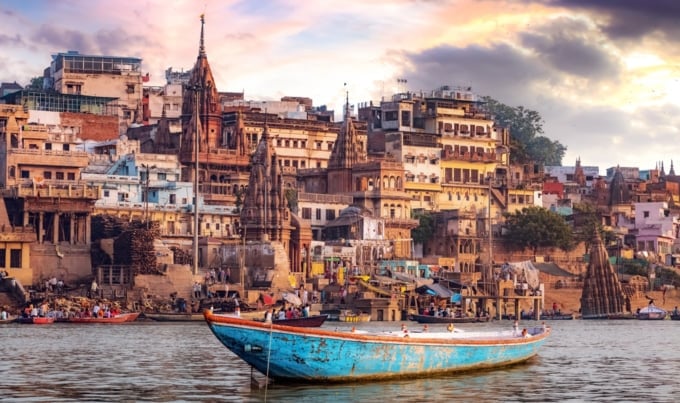
When it comes to Varanasi’s tourist attractions, the ghats are a must-see. A ghat refers to the steps leading from the riverbank into the Ganges, and along these steps, temples, palaces, and cremation grounds line the area. There are a total of 84 ghats, with the most popular ones among tourists being the two cremation sites and Dashashwamedh Ghat.
Dashashwamedh Ghat attracts not only tourists but also many Hindu pilgrims. This is where visitors can take boat rides along the Ganges, and in the evening, it becomes the stage for the "Puja" prayer ceremony. Meanwhile, the two cremation ghats—Manikarnika Ghat and Harishchandra Ghat—have become tourist attractions for foreigners, but for the locals, they remain deeply sacred sites. While it is acceptable to observe, photography at the cremation grounds is strictly prohibited, so be mindful of this rule.
For Hindus in India, Varanasi holds a special meaning. It is believed that being cremated at these ghats and having one's ashes scattered into the Ganges allows the soul to escape the endless cycle of reincarnation. Many people who sense the end of their lives travel to Varanasi to spend their final days here.
Name: Ghat
Address: Varanasi, Uttar Pradesh
3. Sarnath
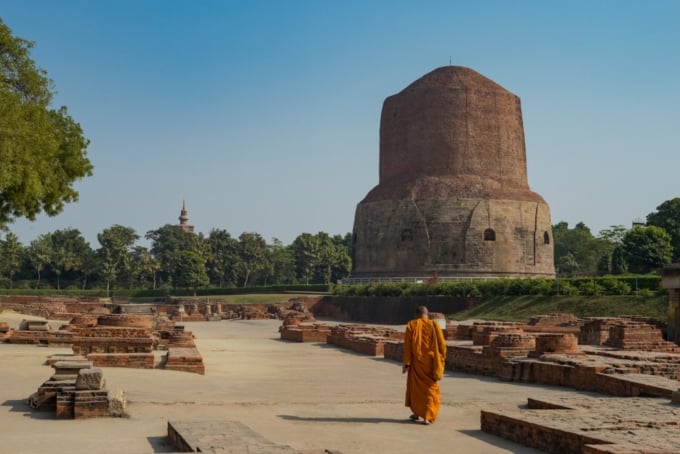
Not far from Varanasi, the Hindu holy city, lies Sarnath, a sacred site for Buddhism. Sarnath is the place where Buddha, after attaining enlightenment, gave his first sermon. It is also known as "Deer Park" because it was once home to many deer, and it is said that Buddha preached here to five Brahmin monks.
Sarnath is home to several fascinating landmarks, including the striking Dhamek Stupa, which still bears intricate carvings. Other key attractions include the Mulagandha Kuti Vihara Temple, which features paintings depicting Buddha’s life created by a Japanese artist, and an ancient pillar erected by Emperor Ashoka, who played a significant role in the spread of Buddhism. These monuments, built between the 3rd and 9th centuries, reflect a long history of expansion and destruction, making them all the more intriguing.
At the entrance to Sarnath, there is a museum displaying artifacts excavated from the ruins. If you visit Varanasi, Sarnath is definitely a place to include in your travel itinerary.
Name: Sarnath
Address: Dharmapala Rd, Singhpur, Sarnath, Varanasi, Uttar Pradesh
4. Kashi Vishwanath Temple
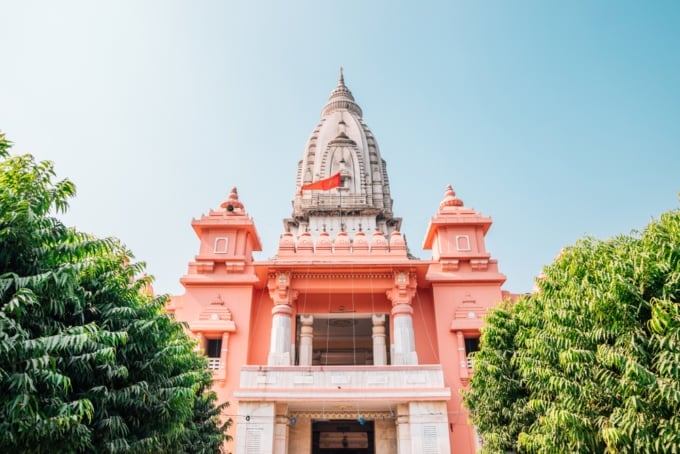
Varanasi is home to Banaras Hindu University, one of Asia’s largest universities. This vast campus includes not only lecture halls but also libraries, residences, and shops, all set in a green, serene environment. One of the highlights of this university is the Vishwanath Temple, a great place to visit when you need a break from Varanasi’s chaotic atmosphere.
Located within Banaras Hindu University, this Vishwanath Temple offers a peaceful escape from the city's bustling streets. Modeled after the original Vishwanath Temple in Varanasi, it features a distinctive pink exterior. Inside, the temple’s white marble interior exudes a solemn and majestic ambiance, making it feel like an entirely different world. Unlike many temples in India, this one is open to people of all nationalities and religions. Nearby, there are cafés and shops where visitors can relax, making it a perfect spot for a short break during sightseeing. Exploring an Indian university can also be a unique and valuable experience.
◎ Summary
Varanasi is a sacred place for Hindus, but it is also a major tourist destination that attracts visitors from all over the world. In this city, the spiritual and the secular coexist, symbolizing the thin line between life and death. Anyone considering a trip to India will inevitably hear about Varanasi. Whether you are a Hindu devotee or a backpacker, this is a destination worth visiting. When exploring the city, however, always remain vigilant and prioritize your safety.
RELATED ARTICLES
REGIONS
CATEGORIES
FEATURED ON India
-

Recommended tourist spots in the Industrial City of Ludhiana, Punjab
-

India is a Treasure Trove of Souvenirs! 4 Best Must-Buy Items in Kolkata
-

The Pinnacle of Eroticism! The World Heritage Site of Khajuraho, India
-

Enjoy Sightseeing in Shillong, India! 8 Recommended Tourist Spots!
-

Recommended Souvenirs from the Resort Destination of Goa, India!
MOST POPULAR ON India
-
 1
1Doha: Must-see Attractions in the Capital of Qatar
-
 2
2Toronto: 10 Things to do in this Picturesque Canadian City
-
 3
3Amarillo: A City Famous for It’s Amazing Canyons, Great History and Music
-
 4
4South Korea: Dazzling Scenery, Rich Culture and Fascinating History
-
 5
5Kuwait: A Country in Middle East Asia Famous for Hot Sand Dunes and Stunning Cityscape





